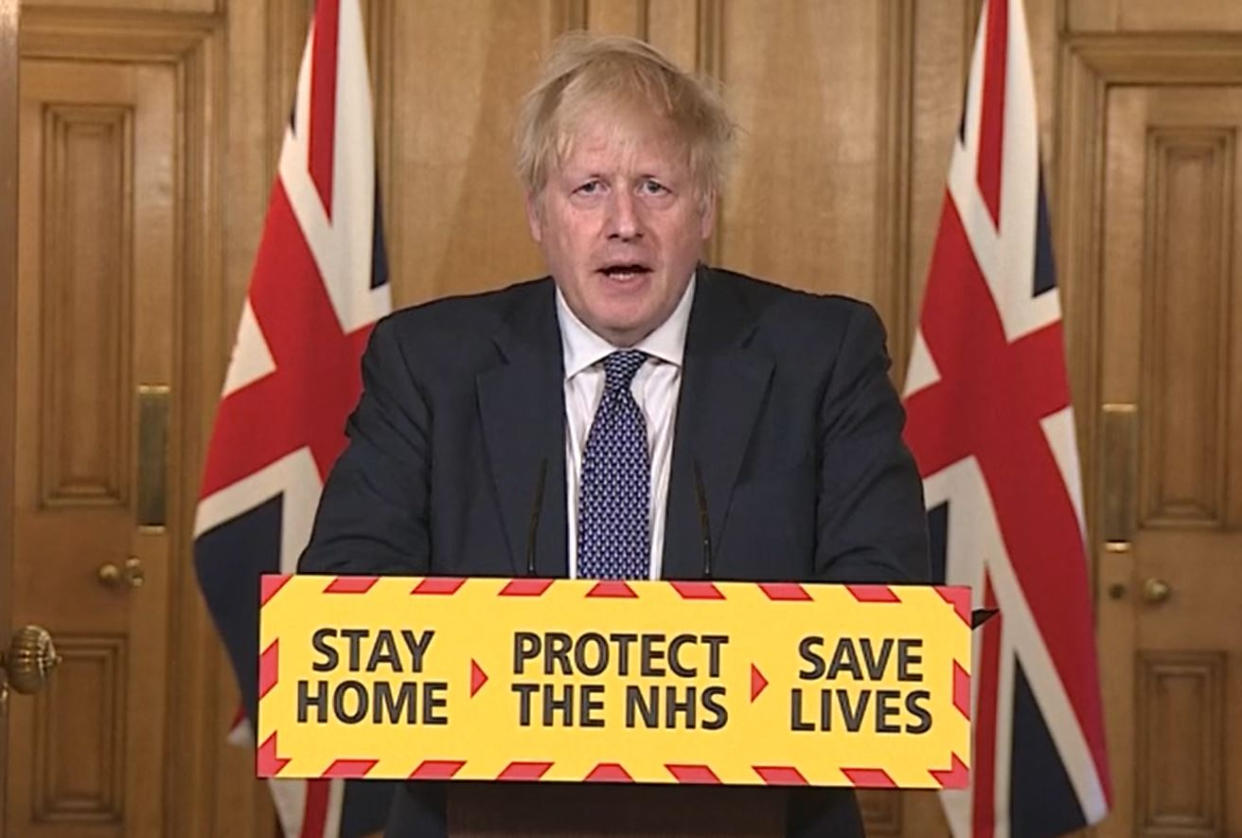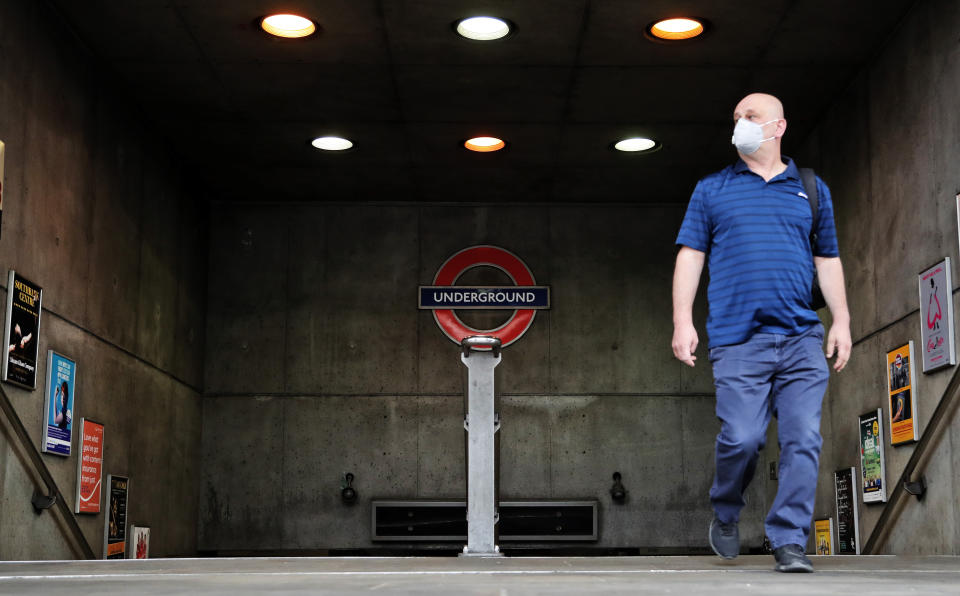Coronavirus: Boris Johnson's new advice on face masks 'goes against sensible scientific advice'

Boris Johnson's apparent U-turn on face coverings “does not follow sensible advice”, scientists have warned.
In a press conference on Thursday, the prime minister said coverings will be “useful” as the country looks to move past government’s restrictions on movement to slow the coronavirus’s spread.
“What I think (the scientific advice body) Sage is saying, and what I certainly agree with, is that as part of coming out of the lockdown, I do think that face coverings will be useful both for epidemiological reasons but also for giving people confidence they can go back to work,” Johnson said.
His remarks seemed to run against past Public Health England advice, which said masks “play a very important role in clinical settings, such as hospitals, but there’s very little evidence of widespread benefit from their use outside of these clinical settings”.
Latest coronavirus news, updates and advice
Live: Follow all the latest updates from the UK and around the world
Fact-checker: The number of COVID-19 cases in your local area
Explained: Symptoms, latest advice and how it compares to the flu
Sir Patrick Vallance previously said a review into wearing masks was under way and there may be benefits in stopping an infected person from spreading it to others.
Earlier this week, Scottish first minister Nicola Sturgeon said her administration was recommending the public start wearing a covering in certain situations.
“We are recommending that you do wear a cloth face covering if you are in an enclosed space with others where social distancing is difficult, for example, public transport or in a shop,” she said.
“Let me emphasise the key point here which is that you should not really be in situations very often like that right now, if you are complying with the stay-at-home rules.”
In a joint statement, professor Robert West, of the Department of Behavioural Science and Health at University College London, and prof Susan Michie, director of the UCL Centre for Behaviour Change, said: “Some health experts are using the “it stands to reason” argument that face masks will confer a benefit but in community settings there are genuine risks that have to be considered.
“One of these is false reassurance which may lead people to fail to adhere to other personal protective behaviours (like) physical distancing, using tissues to catch coughs and sneezes, hand-cleansing, disinfecting surfaces and objects, not touching eyes, nose or mouth.
“Johnson’s remarks about face masks “giving people confidence they can go back to work” goes against sensible scientific advice and are unhelpful in potentially fostering precisely the false reassurance we need to avoid.”
And prof Robert Dingwall, professor of sociology at Nottingham Trent University, said: “This is not “following the science” in any sense that it would be commonly understood, even if we think that that claim is more problematic than ministers allow.
“Face coverings are more likely to amplify fear than promote confidence.”
But prof Trish Greenhalgh, professor of primary care health sciences at the Nuffield Department of Primary Care Health Sciences, University of Oxford, said: “The prime minister’s hint that the government may be about to recommend face coverings as the country begins to come out of lockdown comes not a moment too soon.

“Importantly, a culture of wearing face coverings in public will convey some important societal messages: we’re taking collective responsibility for stamping out this pandemic, my mask protects you; yours protects me.”
Face masks had been an uncommon site on public transport in the UK prior to the pandemic, but public health professor Linda Bauld, of the University of Edinburgh, believes it could become the “new normal”.
She said: “Face coverings provide modest protection to others when the person wearing the covering has the virus and no symptoms, or some symptoms but not enough to recognise that they need to stay at home.
“Wearing a mask or a scarf on public transport, in a shop or in other indoor settings where it is difficult to stay two metres away from others will, I think, become part of the ‘new normal’ we all need to get used to.”

 Yahoo News
Yahoo News 

